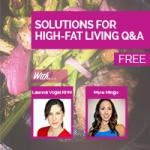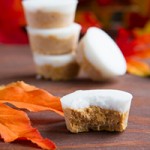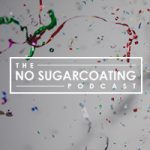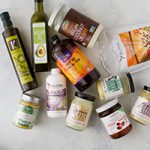I want...
Healthy Vegan
June 7, 2012 By
Leanne Vogel

 June 9, 2015
June 9, 2015
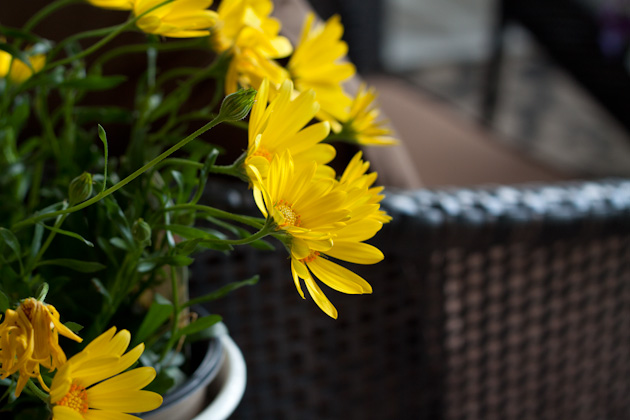 I’m noticing a trend in the questions I’ve been getting in emails, comments and Facebook messages. It seems like everyone wants to know more about the vegan diet – what constitutes as a protein, the story on soy, and what nutrients a vegan should pump up in their diet.
There are many things to consider when you’re vegan and I hope this post helps to shed light on a couple of them to help you along your journey.
I’m noticing a trend in the questions I’ve been getting in emails, comments and Facebook messages. It seems like everyone wants to know more about the vegan diet – what constitutes as a protein, the story on soy, and what nutrients a vegan should pump up in their diet.
There are many things to consider when you’re vegan and I hope this post helps to shed light on a couple of them to help you along your journey.
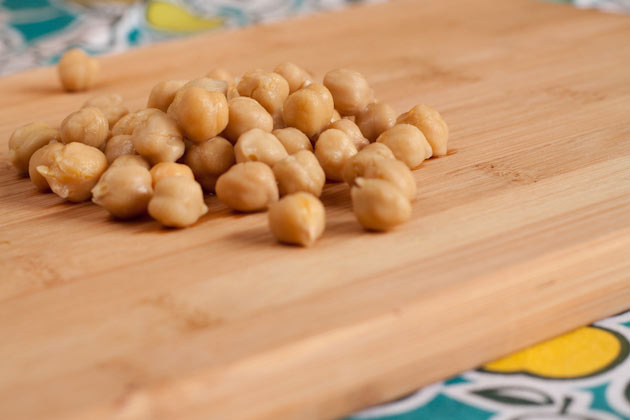 What’s the deal on protein? I’m not sure I can live off beans for the rest of my life.
Vegan living has become more and more mainstream, so when people think vegan proteins, their mind tends to go to things like beans, lentils, and soy products. But there are so many more plant-based foods that offer a pretty hefty amount of protein. Items like wild rice, hemp seed and hemp products, chia seed, nuts, bee pollen (some vegans are comfortable with eating bee products), spirulina, and quinoa (pronounced keen-wah) are just some of the proteins vegans can rely on to replace the animal-based proteins of their previous diet.
It’s worth mentioning also, that if you’re vegetarian, some choose to eat eggs and dairy as well which are both chock-full of protein.
What’s the deal on protein? I’m not sure I can live off beans for the rest of my life.
Vegan living has become more and more mainstream, so when people think vegan proteins, their mind tends to go to things like beans, lentils, and soy products. But there are so many more plant-based foods that offer a pretty hefty amount of protein. Items like wild rice, hemp seed and hemp products, chia seed, nuts, bee pollen (some vegans are comfortable with eating bee products), spirulina, and quinoa (pronounced keen-wah) are just some of the proteins vegans can rely on to replace the animal-based proteins of their previous diet.
It’s worth mentioning also, that if you’re vegetarian, some choose to eat eggs and dairy as well which are both chock-full of protein.
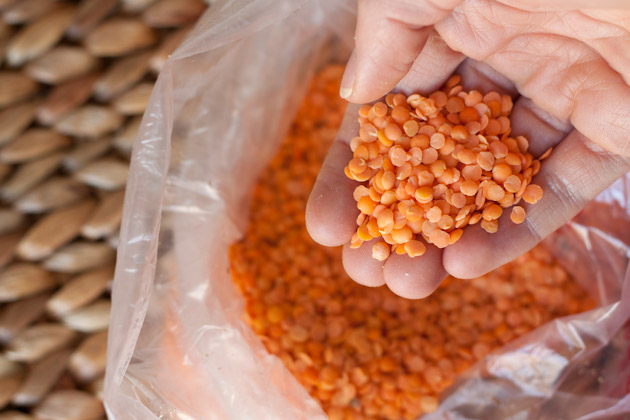 What’s the soy story? I’ve heard it’s bad for my health.
The soy debate is a lengthy topic! Basically, soy contains a mix of phytoestrogens, plant estrogens, which may stimulate or inhibit the cells of our estrogen receptors. Just because soy contains these phytoestrogens does not mean that consuming whole soy is going to stimulate in inhibit the cells. Studies are now showing that consumption of soy, as seen in Asian cultures, can be beneficial for our health.
Consumption of 1-2 servings of healthy, whole foods based soy a day is going to do more good than bad and will give you about 35-40mg of isoflavones a day, enough to give you the benefits of soy without overdoing it. You can find whole food sources of soy in organic, Non-GMO products like cooked soy beans, edamame, tofu, miso, tempeh and soy milk. The less processed and more fermented, the better!
What’s the soy story? I’ve heard it’s bad for my health.
The soy debate is a lengthy topic! Basically, soy contains a mix of phytoestrogens, plant estrogens, which may stimulate or inhibit the cells of our estrogen receptors. Just because soy contains these phytoestrogens does not mean that consuming whole soy is going to stimulate in inhibit the cells. Studies are now showing that consumption of soy, as seen in Asian cultures, can be beneficial for our health.
Consumption of 1-2 servings of healthy, whole foods based soy a day is going to do more good than bad and will give you about 35-40mg of isoflavones a day, enough to give you the benefits of soy without overdoing it. You can find whole food sources of soy in organic, Non-GMO products like cooked soy beans, edamame, tofu, miso, tempeh and soy milk. The less processed and more fermented, the better!
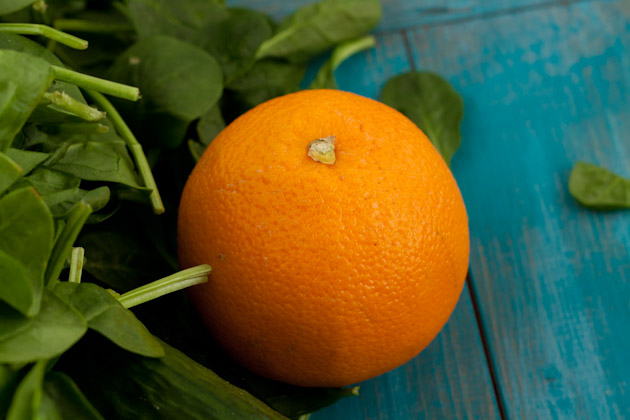 I was told that I need to take an iron supplement, is that true?
There are plenty of ways to pump iron into the vegan diet! One of my favorite ways is by cooking with cast iron pans. When foods that are high in vitamin C, like tomatoes, peppers, Brussels sprouts, greens, and broccoli are cooked in a cast iron pan, the iron is leached out of the cookware into your food! Crazy, right?
This same vitamin C to iron relationship is great when consuming foods high in iron. Items like beans, soy, tofu, dried apricots, pumpkin seeds and oatmeal all contain iron. Pair them with foods high in vitamin C like potatoes, tomatoes, peppers, citrus fruits or strawberries and you’ll increase absorption rate!
I was told that I need to take an iron supplement, is that true?
There are plenty of ways to pump iron into the vegan diet! One of my favorite ways is by cooking with cast iron pans. When foods that are high in vitamin C, like tomatoes, peppers, Brussels sprouts, greens, and broccoli are cooked in a cast iron pan, the iron is leached out of the cookware into your food! Crazy, right?
This same vitamin C to iron relationship is great when consuming foods high in iron. Items like beans, soy, tofu, dried apricots, pumpkin seeds and oatmeal all contain iron. Pair them with foods high in vitamin C like potatoes, tomatoes, peppers, citrus fruits or strawberries and you’ll increase absorption rate!
 Are there nutrients that a vegan is missing out when they remove animal products? Are there foods I should focus on to help me get those nutrients?
Many of us believe that if we are consuming the recommended daily amount of vitamins and minerals, that we are meeting our nutrient needs. Unfortunately this couldn’t be further from the truth. The recommended daily amounts for vitamins and minerals are in place so that we avoid diseases, like scurvy (vitamin C deficiency) or rickets (vitamin D deficiency) but doesn’t necessarily mean it’s enough for a healthy functioning body. The best way to get these vitamins and minerals is to take a whole food multi-vitamin and ensure our diet is packed with highly nutritious foods.
For the supplement, look for something that’s been created from food and not in a lab. Some of my favorites are products from Garden of Life and New Chapter. Check out my post on essential vs. nice-to-have supplements for more information on an inexpensive approach to supplement planning.
Are there nutrients that a vegan is missing out when they remove animal products? Are there foods I should focus on to help me get those nutrients?
Many of us believe that if we are consuming the recommended daily amount of vitamins and minerals, that we are meeting our nutrient needs. Unfortunately this couldn’t be further from the truth. The recommended daily amounts for vitamins and minerals are in place so that we avoid diseases, like scurvy (vitamin C deficiency) or rickets (vitamin D deficiency) but doesn’t necessarily mean it’s enough for a healthy functioning body. The best way to get these vitamins and minerals is to take a whole food multi-vitamin and ensure our diet is packed with highly nutritious foods.
For the supplement, look for something that’s been created from food and not in a lab. Some of my favorites are products from Garden of Life and New Chapter. Check out my post on essential vs. nice-to-have supplements for more information on an inexpensive approach to supplement planning.
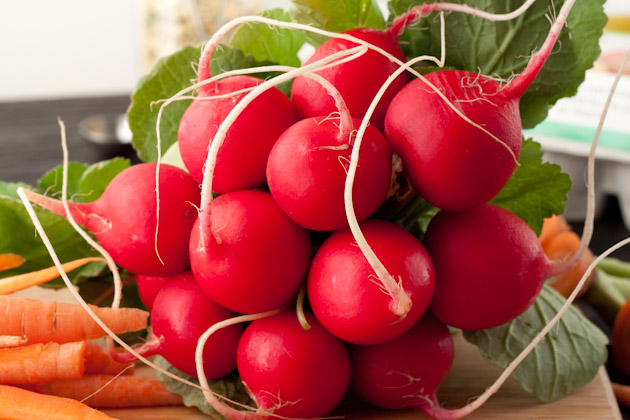 Variety is key, not just for vegans, but for all of us. Incorporating variety into our vegetable, fruit, protein, starch and fat choices will ensure that we’re getting a bit of everything we need to live a happy and healthy life. Cutting out animal products, however does mean that we have to be a bit more mindful of our intake of calcium, iron, vitamin B12 and zinc. Here are some foods that you can incorporate into your diet to ensure you’re getting a healthy dose of these vitamins and minerals,
Variety is key, not just for vegans, but for all of us. Incorporating variety into our vegetable, fruit, protein, starch and fat choices will ensure that we’re getting a bit of everything we need to live a happy and healthy life. Cutting out animal products, however does mean that we have to be a bit more mindful of our intake of calcium, iron, vitamin B12 and zinc. Here are some foods that you can incorporate into your diet to ensure you’re getting a healthy dose of these vitamins and minerals,
- Calcium: leafy greens (kale, spinach, mustard greens, beet greens, collard, etc.), almonds, sesame seeds, broccoli, beans and figs.
- Vitamin B12: nutritional yeast, miso and sea vegetables
- Zinc: pumpkin and sunflower seeds, whole dairy (if consumed), soy, beans, and nuts.
 As with anything, I encourage you to choose the diet that’s best for your body. If you’re a vegan who often craves meat and feels like there’s something missing, listen to those urges and feed your body what it is asking for. If every time you eat animal protein you feel lethargic, give the vegan lifestyle a try. Life is all about figuring ourselves out and a lot of it can be achieved by finding the right diet for our bodies.
I’m often asked, ‘but if I start eating animal proteins again, my friends will judge me. How do I tell them I’ve made this decision for myself?’ If I’ve learned anything, it’s that we shouldn’t have to justify our food choices to anyone. We should live for ourselves because ultimately, our body knows best. If you crave meat, eat meat. You can still make great, ethically sound choices when you choose to incorporate animal proteins into your diet. And most of all, trust that whatever decision you make will nourish your body and soul if it’s the right choice for you.
As with anything, I encourage you to choose the diet that’s best for your body. If you’re a vegan who often craves meat and feels like there’s something missing, listen to those urges and feed your body what it is asking for. If every time you eat animal protein you feel lethargic, give the vegan lifestyle a try. Life is all about figuring ourselves out and a lot of it can be achieved by finding the right diet for our bodies.
I’m often asked, ‘but if I start eating animal proteins again, my friends will judge me. How do I tell them I’ve made this decision for myself?’ If I’ve learned anything, it’s that we shouldn’t have to justify our food choices to anyone. We should live for ourselves because ultimately, our body knows best. If you crave meat, eat meat. You can still make great, ethically sound choices when you choose to incorporate animal proteins into your diet. And most of all, trust that whatever decision you make will nourish your body and soul if it’s the right choice for you.
This entry was tagged: vegan
Hi! I'm Leanne (RHN FBCS)
a Functional Medicine Practitioner, host of the Healthful Pursuit Podcast, and best-selling author of The Keto Diet & Keto for Women. I want to live in a world where every woman has access to knowledge to better her health.

